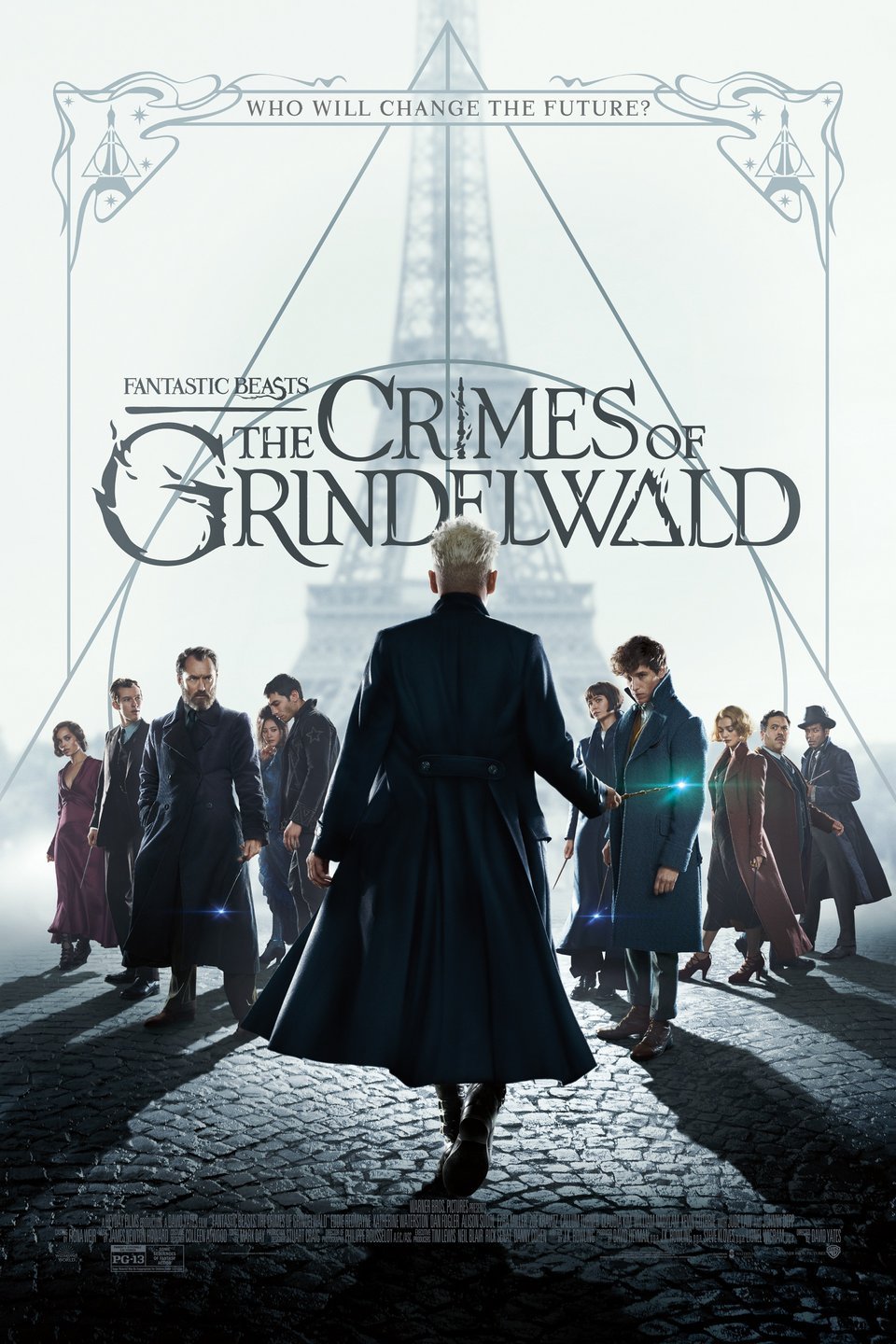
Never before have I been more starkly aware of the difference between enchanting and diverting.
JK Rowling’s Wizarding World, from its first entry in literary form to its final film adaptation of its final published novel, has always been so ripe for expansion and side story exploration, it’s almost criminal that it took nearly a decade past the release of the final film for it to happen in any capacity.
I only wish that the adventures of Newt Scamander in an
early twentieth century world of magic could manage even a fraction of the
resonance behind “Harry Potter’s” coming of age tale.
Sequel to 2016’s well meaning and well conceived but
ultimately underwhelming “Fantastic Beasts and Where to Find Them,” “The Crimes
of Grindelwald,” in true Post-cinematic Universe age Warner Bros. fashion,
manages to assemble an almost Sony-esque clunker of a tale exploring themes of
xenophobia and the contradictory view that hold something as other can be
inherently equal despite the fundamental status of being kept separate, spared
from being worthy purely of outright dismissal by the clearly unabashed levels
of sincerity that are noticeable in the final product.
It can’t be understated how much that sincerity really is
the sole saving grace of the movie. Rowling’s growing but nevertheless lacking
understanding of what writing should be prioritized for what it lends to
cinematic language still carries a bold tale of the dangers of past
transgressions and the tragically cyclical nature of history’s repetition, here
literalized by being a period piece that almost seems to invoke an air of real
life xenophobia bubbling back up in society today.
Unfortunately, the minutia of world building and character connections
is the name of the game and try as David Yates might, he just can’t make a
feature that rises but so far over the cumbersome family politics harkening
back to supplemental references of the original “Harry Potter” books and the
pragmatic but clumsy abandonment of story concepts clearly set in motion before
there was a cohesive idea of what this story was supposed to be.
Despite being only the second entry of its storyline, a good
portion of “The Crimes of Grindelwald” almost feels like a cliffhanging season
finale to show that’s been airing for at least a few seasons.
The interplay between characters is far too dense and self-serious,
building off of only passing blurbs of information from previous entries as
opposed to developed stories that have played out on screen already.
Watching Newt stumble between something of an implied love
triangle between his childhood crush and Tina Goldstein is actually executed
with a fair amount of charming performances, thanks in main part to the
chemistry of the cast but when the aforementioned crush, Leta Lestrange, played
by Zoë Kravitz, in question was relegated to a single cameo lasting a few
seconds in the previous film, watching the whole stupid sitcom-esque
misunderstanding play out just feels hollow.
That level of artificially founded character building that
plagues the movie is a rough pill to swallow and that’s before getting into the
blatant mechanical alterations made to the story in order to allow this to
exist.
While Dan Fogler and Alison Sudol reprise their roles as
Jacob and Queenie respectively and are still among the most charming element of
the story, the movie’s decision to circumvent the narrative gymnastics necessary
to involve them in the story in the first place by almost hand waving away the
best aspects of the last film’s ending is flat out cheap, and cheapened even
further by the almost nonsensical conclusion they arrive at in this one.
All of this is to say nothing of the series of mysteries and
conflicts that overstuff this feature forming the backbone of a scattershot
plot that not only fails to resolve any of them but after a certain point
starts to make you flat out not care about them, from the major reveal behind
Credence’s (reprised by Ezra Miller) true nature to the increasingly asinine
cop out of Dumbledore’s nonexistent sexuality, contradictory to what the series
scribe’s publicizing would want the audience to believe.
I understand that all of this must sound infuriatingly
negative and that’s because from a storytelling standpoint, this movie just
flat out falls apart.
From a filmmaking standpoint however, the technical spectacle
does at least succeed where the series seemed to be failing up to this point.
The action, presentation, and overall aesthetic of the Wizarding World is
portrayed with an undeniably gripping level of visual cleverness that keeps
things consistently engaging even when the characters aren’t up to the task of
doing so.
To that end, the movie is also admittedly more cohesive than
the first, a fantastical neo noir-like period appropriate musical score driving
a darker and more consistent tone that better blends the nature of the story
with its spectacle driven subject matter. There’s obviously a far more transparent
vision of where this story is going hear than their ever was in “Fantastic
Beasts and Where to Find Them.” What hurts most about that is that “The Crimes
of Grindelwald” is a noticeable improvement over its predecessor but just not
up to the pedigree of nearly everyone involved in it.
5 Phoenix Flames out of 10
No comments:
Post a Comment